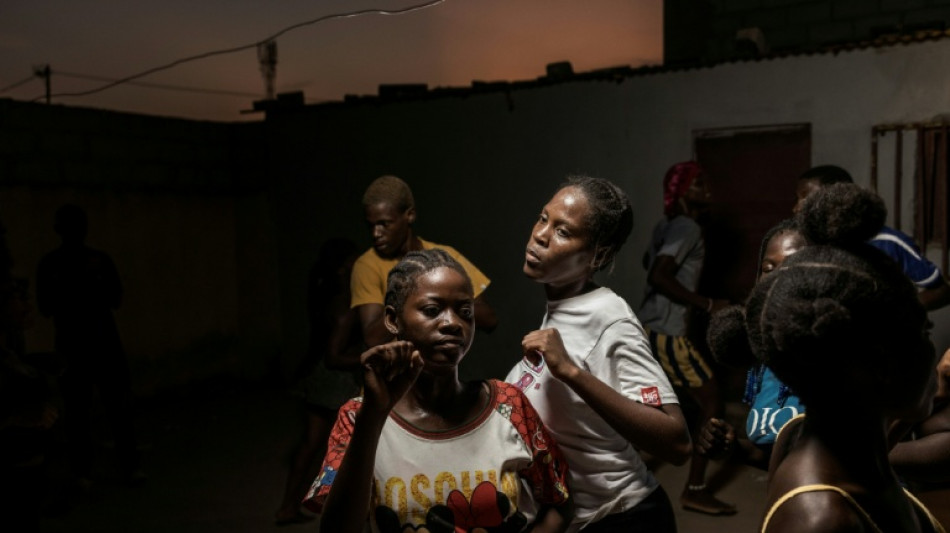
-
 Moscow, Kyiv meet for US-brokered talks after fresh attacks
Moscow, Kyiv meet for US-brokered talks after fresh attacks
-
Exhilarating Italy aim to sign off with giant-killing at T20 World Cup

-
 Samra hits 110 for Canada against New Zealand at T20 World Cup
Samra hits 110 for Canada against New Zealand at T20 World Cup
-
'Made in Europe' or 'Made with Europe'? Buy European push splits bloc

-
 Slovakia revamps bunkers with Ukraine war uncomfortably close
Slovakia revamps bunkers with Ukraine war uncomfortably close
-
Sydney man jailed for mailing reptiles in popcorn bags
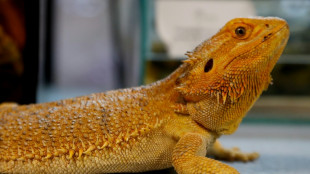
-
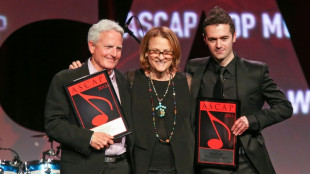 'Like a Virgin' songwriter Billy Steinberg dies at 75
'Like a Virgin' songwriter Billy Steinberg dies at 75
-
Who fills Sexton vacuum? Irish fly-half debate no closer to resolution

-
 Japan hails 'new chapter' with first Olympic pairs skating gold
Japan hails 'new chapter' with first Olympic pairs skating gold
-
Russian prosthetics workshops fill up with wounded soldiers
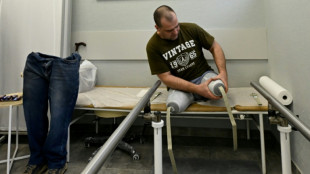
-
 'Not just props that eat': Extras seek recognition at their own 'Oscars'
'Not just props that eat': Extras seek recognition at their own 'Oscars'
-
Bangladesh PM-to-be Tarique Rahman and lawmakers sworn into parliament

-
 At least 14 killed in spate of attacks in northwest Pakistan
At least 14 killed in spate of attacks in northwest Pakistan
-
Peru Congress to debate impeachment of interim president

-
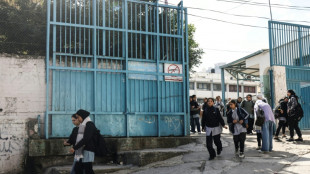 Bleak future for West Bank pupils as budget cuts bite
Bleak future for West Bank pupils as budget cuts bite
-
Oil in spotlight as Trump's Iran warning rattles sleepy markets

-
 Why are more under-50s getting colorectal cancer? 'We don't know'
Why are more under-50s getting colorectal cancer? 'We don't know'
-
Moscow, Kyiv set for Geneva peace talks amid Russian attacks

-
 Iran, United States set for new talks in Geneva
Iran, United States set for new talks in Geneva
-
China has slashed air pollution, but the 'war' isn't over

-
 India's tougher AI social media rules spark censorship fears
India's tougher AI social media rules spark censorship fears
-
Doctors, tourism, tobacco: Cuba buckling under US pressure
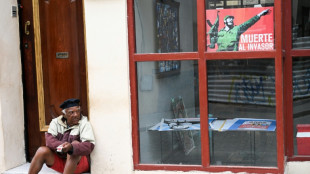
-
 Indonesia capital faces 'filthy' trash crisis
Indonesia capital faces 'filthy' trash crisis
-
France grants safe haven to anti-Kremlin couple detained by ICE
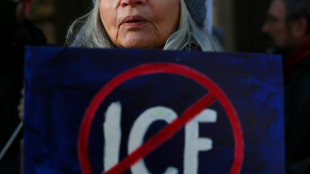
-
 BioNxt Receives Milestone EPO Decision to Grant European Patent for Sublingual Cladribine Drug Delivery Technology for Multiple Sclerosis
BioNxt Receives Milestone EPO Decision to Grant European Patent for Sublingual Cladribine Drug Delivery Technology for Multiple Sclerosis
-
Nano One Announces Executive Leadership Appointments

-
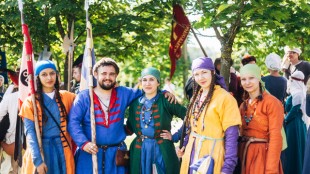 Agronomics Limited Announces Half-year Financial Report
Agronomics Limited Announces Half-year Financial Report
-
Empire Metals Limited Announces Major Drilling Campaign to Commence at Pitfield

-
 Coca-Cola Europacific Partners plc Announces Preliminary Unaudited Results Q4 & FY 2025
Coca-Cola Europacific Partners plc Announces Preliminary Unaudited Results Q4 & FY 2025
-
Nikon Introduces The Ultra Compact Trailblazer II Binocular

-
 The Venture Debt Conference Announces Speakers for April 16 Event in New York
The Venture Debt Conference Announces Speakers for April 16 Event in New York
-
Frederick Wiseman, documentarian of America's institutions, dead at 96

-
 Gu pipped to Olympic gold again as Meillard extends Swiss ski dominance
Gu pipped to Olympic gold again as Meillard extends Swiss ski dominance
-
Copper powers profit surge at Australia's BHP
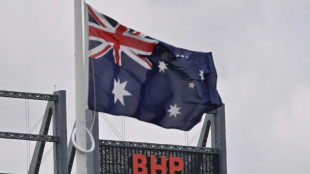
-
 China's Gu defiant after missing out on Olympic gold again
China's Gu defiant after missing out on Olympic gold again
-
Remains of Colombian priest-turned-guerrilla identified six decades later
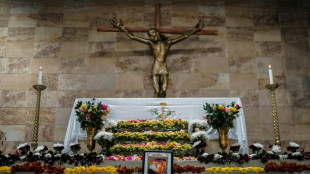
-
 USA bobsleigh veteran Meyers Taylor wins elusive gold
USA bobsleigh veteran Meyers Taylor wins elusive gold
-
Miura and Kihara snatch Olympic pairs gold for Japan

-
 Gu pipped to gold again as Meillard extends Swiss ski dominance at Olympics
Gu pipped to gold again as Meillard extends Swiss ski dominance at Olympics
-
Barca suffer title defence blow in Girona derby defeat

-
 Brentford edge out sixth-tier Macclesfield in FA Cup
Brentford edge out sixth-tier Macclesfield in FA Cup
-
Canada's Oldham wins Olympic freeski big air final, denying Gu gold

-
 France loosens rules on allowing farmers to shoot wolves
France loosens rules on allowing farmers to shoot wolves
-
USA thrash Sweden to reach Olympic women's ice hockey final

-
 Russian poisonings aim to kill -- and send a message
Russian poisonings aim to kill -- and send a message
-
France's Macron eyes fighter jet deal in India

-
 Arsenal to face third-tier Mansfield, Newcastle host Man City in FA Cup
Arsenal to face third-tier Mansfield, Newcastle host Man City in FA Cup
-
Robert Duvall: understated actor's actor, dead at 95

-
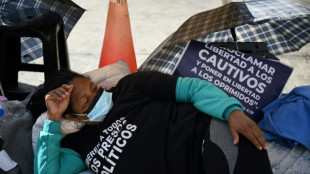 'How long?': Day Three of hunger strike for Venezuelan political prisoners' release
'How long?': Day Three of hunger strike for Venezuelan political prisoners' release
-
Berlinale: Film director Mundruczo left Hungary due to lack of funding


Colourful Angolan carnival celebrates half century independence
Their sweat-stained faces lit only by a dim yellow bulb in a neglected corner of the capital Luanda, revellers sway their hips to the sound of a catchy beat on the eve of the annual Angolan carnival.
The members of Groupe Uniao 17 de Setembro rehearse the semba, a playful yet intimate dance that emphasises connection and improvisation -- without the sensual pace of its sister style Kizomba.
The name means "a touch of belly buttons" in the Angolan language Kimbundu.
A tourism drawcard, the carnival's roots lie in Angola's Portuguese past and offers the oil-rich country a chance to showcase its creativity, culture and music.
The event is usually held ahead of Easter and ushers in the season of Lent.
The parade became an annual tradition in 1978 and attracts dancers and floats from Angola's different ethnic communities in colourful costumes and makeup.
This year's edition will dazzle the capital in a three-day extravaganza to celebrate 50 years of independence.
The carnival "represents our identities, our cultural tradition, where each province shows its beauties," said Domingos Mboloy, who heads the Amazonas de Prenda, a group from the popular Prenda district of Luanda.
His 350 performers rehearsed for months in hopes of winning the carnival's grand prize.
This year, they chose to honour "the kingdoms of Angola," he told AFP.
"Before colonisation and independence, there were the Ndongo and Matamba kingdoms ... Queen Nzinga and King Mandume," he said.
Queen Nzinga Mbande and King Mandume ya Ndemufayo, who ruled in the 1600s and the early 1900s respectively, have both become national symbols of resistance to colonialism.
- Low-key celebrations -
Saturday's celebrations opened with a sea of colour and traditional music as children danced in a parade.
Decked out in yellow fedora hats, brown and gold silk tops and matching multi-coloured ruffled skirts, girls stood shoulder to shoulder before the blow of a whistle set off a jig.
At least 15 groups took part in the performances.
Boys holding black umbrellas with their white gloves and wooden walking canes to top the sleek look also joined in the procession along streets lined with spectators.
Once held nationwide, the carnival performance is now centralised in Luanda, with celebrations subdued due to the country's financial struggles.
Despite fabulous oil riches, Angola remains one of the poorest countries in the world and is one of the most closed societies on the African continent.
The festival came back in force in 2023 after a two-year pandemic hiatus.
Like its more famous counterpart in Brazil, the carnival will culminate on Monday, when groups, extravagant floats and marching bands will once again parade in front of a jury, in an event attended by President Joao Lourenco.
F.Dubois--AMWN